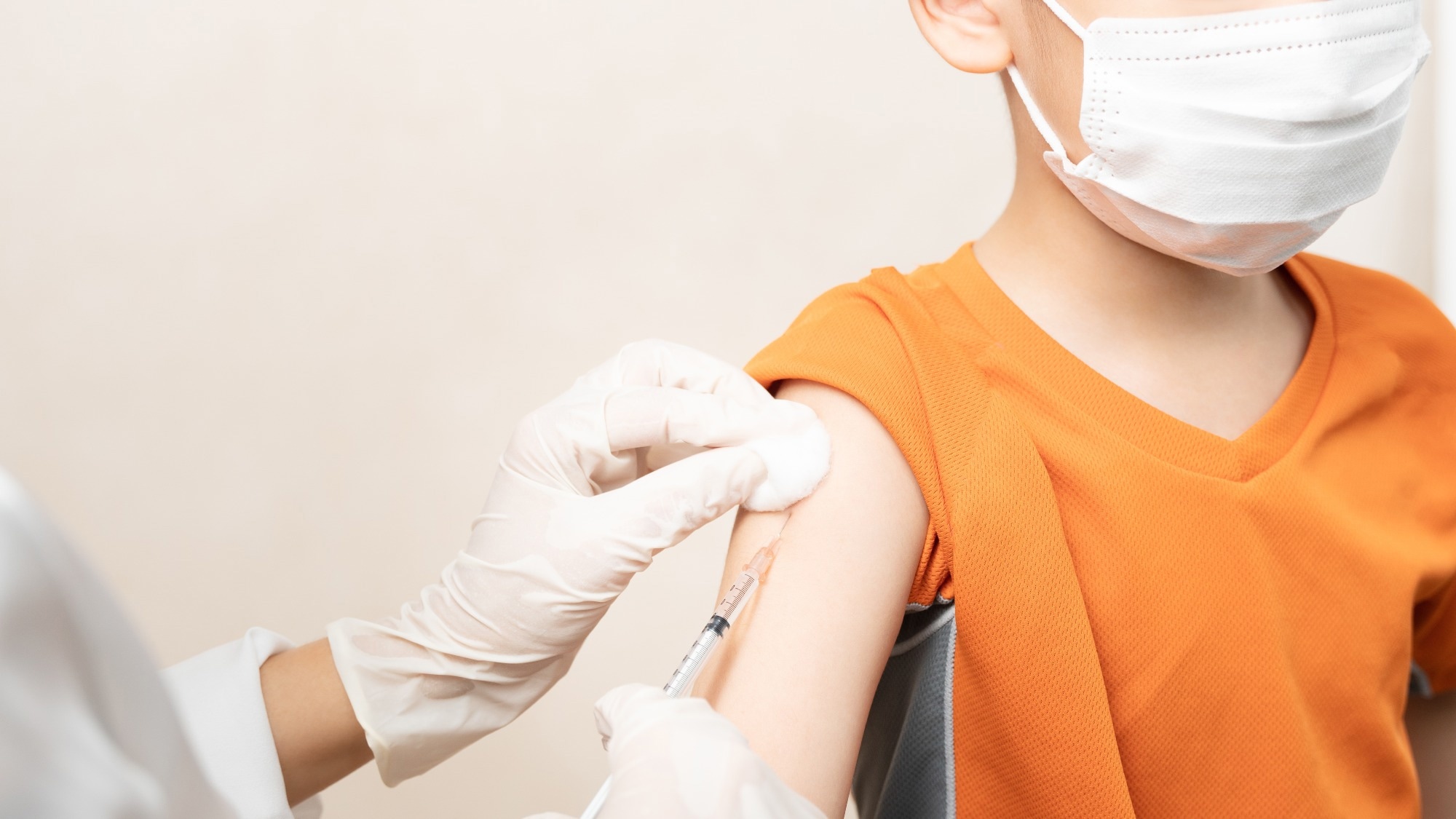Given the persisting waves of coronavirus disease 2019 (COVID-19) among Americans, it is recommended that children take the COVID-19 vaccines to reduce its transmission. However, the uptake of these vaccines among children continues to be low.
 Study: Parental refusal and hesitancy of vaccinating children against COVID-19: Findings from a nationally representative sample of parents in the U.S. Image Credit: myboys.me/Shutterstock
Study: Parental refusal and hesitancy of vaccinating children against COVID-19: Findings from a nationally representative sample of parents in the U.S. Image Credit: myboys.me/Shutterstock
Introduction
Children make up almost a fifth of all cases of COVID-19 in the USA. While most cases are mild or asymptomatic, some children become seriously ill, including those who develop the delayed multi-system inflammatory syndrome in children (MIS-C).
Vaccines against the disease were rolled out in January 2021 and have been progressively extended to larger segments of society. The Centers for Disease Control and Prevention (CDC) recommend these shots for everyone above six months of age. However, the American Academy of Pediatrics, reported in August 2022 that a third of children above 12 years, two-thirds between 5 and 11 years, and 96% between six months and four years have not had even one shot of any COVID-19 vaccine.
Since parents are primarily in charge of taking vaccine-related decisions for their children, as has been recognized specifically for COVID-19 shots in most US states, vaccine uptake rates among children reflect the attitudes of their parents to this shot in this situation.
Many earlier studies have attempted to evaluate parental attitudes in this area, using sociodemographic factors, attitudes to vaccination, to public health and government, as well as to vaccination in general. However, the parental understanding of vaccine characteristics is often excluded.
The survey was designed to be representative and, therefore generalizable, using a discrete-choice model to provide data that could be analyzed to yield a cause-effect relationship between vaccine characteristics and parental vaccine choices. It was carried out in October-November 2021, including almost 1,500 parents of children below 18.
A range of vaccine alternatives was offered as hypothetical situations to observe their choices. The analysis aimed to estimate the vaccine characteristics underlying parental refusals of hypothetical vaccine alternatives offered in any hypothetical situation among those provided in the survey.
What are the survey findings?
The researchers found that about one in five parents refused both vaccines under any circumstances – termed vaccine refusal. This is linked to specific social and demographic factors but also to political affiliations and convictions.
Female parents were more likely to refuse to vaccinate their children, especially if they were Black – possibly due to a lack of trust in the political and medical system. Those who favored Republican ideology were also six times more likely to refuse than those leaning the other way. This indicates the need to broadcast a uniform message, irrespective of party lines, about the safety and effectiveness of vaccines.
Other risk factors included being an essential worker but not in healthcare, having a history of COVID-19, and not having taken the COVID-19 shot or flu shot. Parents who survived COVID-19 may have been more likely to downplay its severity, especially when compared to the unknown consequences of the vaccines.
Vaccination status, whether the parent and/or child had COVID-19 earlier, and the experience during the infection, all played a role. Parents who refused the vaccine had children who were more likely to be younger and to have escaped COVID-19 so far. They were also less likely to have had the seasonal flu shot.
Parents who did not have a healthcare provider recommend the shot for their child formed one category of vaccine-hesitant parents. This indicates the trust that many parents have in medical advice and offers a valuable route for vaccine-related communication.
Public health efforts are recommended to target marginalized groups without strong ties to the standard healthcare infrastructure, who are frequently the most persuadable vaccine refusers.”
Among vaccine-willing parents, the two factors that drove the vaccine choice were the associated severe adverse effects and vaccine effectiveness. The most common reasons included fear of long-term health consequences and a perception that the vaccine was too new.
The duration of protection offered was also important, while relatively minor factors included the risk of hospitalization among the unvaccinated COVID-19 pediatric patients and local vaccine uptake rates.
What are the conclusions?
Because of these findings, the researchers point to the need to give parents reliable and robust proof of high vaccine effectiveness and the low risk of serious adverse effects. This is the best way to increase vaccine uptake among children.
Further studies should address the changes in local uptake, vaccine effectiveness, and child hospitalization scenarios per the real situation since this could have limited the usefulness of hypothetical thinking in some of these cases – especially when the children were already vaccinated and when different vaccines with varying attributes are available.
To improve vaccine-related communication and thus vaccine uptake among vulnerable groups, the focus of government and health officials should be to “develop outreach programs at community level to encourage specific subgroups and focus on vaccination depoliticization.”